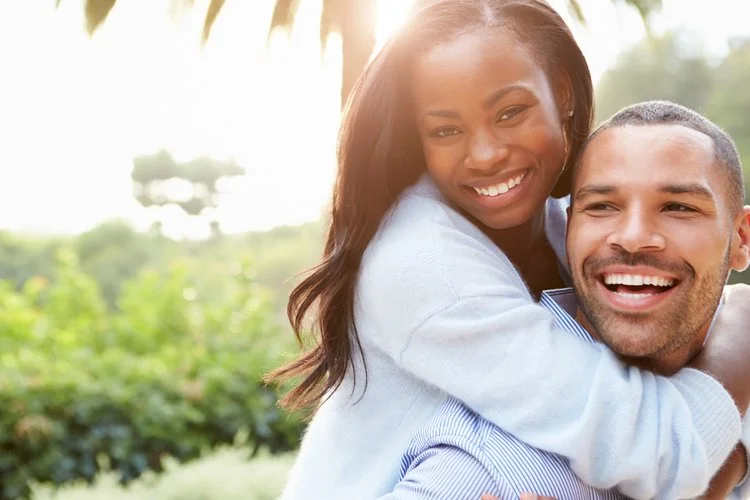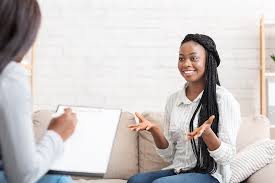A couple sits quietly at their dining table in Halifax, exhausted from yet another argument that seems to circle back to the same issues—money, work stress, parenting, intimacy, and the weight of everyday pressures. Both partners know they love each other deeply, but they’re tired of repeating the same painful patterns.
“Maybe we should try therapy?” one suggests hesitantly.
The thought of opening up to a stranger feels uncomfortable. For many Black families, the unspoken rule has long been “what happens at home, stays at home.” But as the couple considers their options, another question emerges: Will we be able to find a therapist who understands what it means to be a Black couple in today’s world?
Why Black Couples Sometimes Hesitate to Seek Therapy
Black couples face unique stressors that other couples may not. Experiences of racial discrimination, microaggressions at work, intergenerational trauma, and cultural expectations can all add pressure to an already strained relationship. Yet despite these challenges, statistics show that only about 25% of African Americans seek mental health treatment, compared to 40% of white individuals.
Why the gap? A combination of unequal access to care, stigma, misdiagnosis, and—importantly—a lack of Black mental health professionals. Many Black couples simply want to know: Can I find someone who will understand my cultural and personal experiences without judgment?
The answer is yes. And yes—you can request a Black therapist.
Meet Stacy Darku, BIPOC Counsellor in Halifax
At Esinam Counselling Inc., our team is committed to providing culturally competent care. Founder and therapist Stacy Darku specializes in helping individuals and couples navigate racial trauma, sexual trauma, addiction recovery, and relationship challenges.
“Many of my clients come in feeling stuck, overwhelmed, or unheard. My role is to create a safe, supportive environment where they don’t have to explain or justify their experiences. That’s where real healing begins.” — Stacy Darku
Q&A with Stacy Darku
Q: What are some of the biggest challenges Black couples face when starting therapy?
A: One of the first challenges is simply finding a therapist who feels like a good fit. Many couples are stepping into therapy for the first time, which can feel intimidating. On top of that, cultural values such as keeping problems private can make it harder to take the first step. Trust is also huge—Black men, in particular, often tell me they fear being stereotyped or misunderstood in sessions. That’s why it’s so important to build a therapeutic space where both partners feel seen, respected, and safe.
Q: What advice do you have for couples looking for a Black therapist?
A: Don’t be afraid to ask directly. If having a Black therapist is important to you, request it without hesitation. Look through therapist directories like Psychology Today or Therapy for Black Girls, and read profiles carefully. Watch for mention of cultural competency, trauma-informed care, or racial justice work. And don’t settle after the first call—sometimes you have to “shop around” before you find someone who’s the right fit for both partners.
Q: What progress are you seeing in the Black community around therapy?
A: It’s inspiring to see more openness about therapy. Couples are recognizing that vulnerability is not weakness—it’s a pathway to healing. I see more clients setting boundaries between spiritual support and mental health services, and more people talking openly with friends and family about their therapy journey. That’s a huge cultural shift. We’re building a new narrative where therapy is not a last resort, but a proactive step for growth.
Q: What benefits do Black couples see when they commit to therapy?
A: Couples often begin to communicate more clearly and learn to address issues like family roles, cultural expectations, and relationship dynamics without judgment. Therapy helps them expand their emotional language, practice vulnerability, and strengthen trust. The skills they build in session don’t just stay in the therapy room—they carry them into their families and communities. That ripple effect is powerful.
5 Tips for Black Couples Considering Therapy
- Check your insurance or benefits – Confirm whether couples therapy is covered and what your out-of-pocket costs might be.
- Define what matters to you in a therapist – Do you prefer a male or female therapist? Do you want someone faith-based? Someone experienced in racial trauma? Get clear on your priorities.
- Be unapologetic about requesting a Black therapist – Cultural fit matters. If it helps you feel safe and understood, advocate for it.
- Explore affordable options if needed – Graduate school clinics or community agencies often offer therapy at reduced rates, without compromising quality.
- Start with a consultation – A short phone or video consult helps you gauge if the therapist is the right fit before you commit to ongoing sessions.
Final Thoughts
Seeking therapy as a Black couple is not a sign of weakness—it’s a sign of commitment to your relationship and to yourself. At Esinam Counselling Inc., we believe every couple deserves a space where they feel heard, respected, and empowered to grow.
If you’re considering couples therapy and want a counsellor who understands the cultural, spiritual, and social dynamics unique to Black couples, we’re here to help.
📍 Halifax Locations
447 Sackville Dr Unit 1B, Lower Sackville, NS
190 Victoria Road, Unit 203, Dartmouth, NS
📞 Contact Us Today: 902-252-0595
📧 info@esinamcounselling.ca



